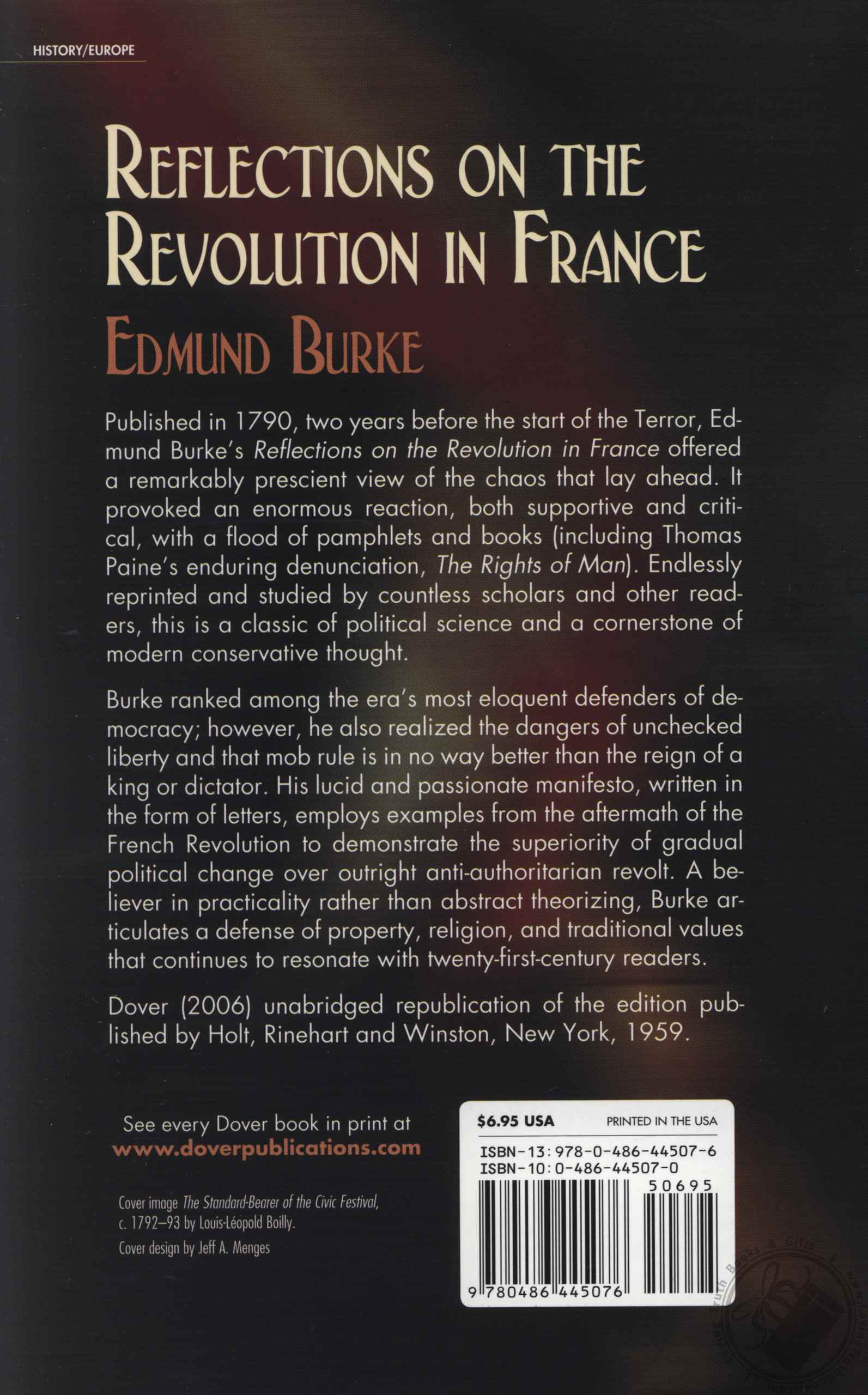

Preoccupation with abstract “rights” can lead people to overlook human nature and justify the “grand spectacle” of revolution.īurke dramatically retells the story of the invasion of Versailles on October 6, 1789, when the King and Queen were forcibly driven to Paris by their subjects. Government, rather, is “a contrivance of human wisdom to provide for human” needs it relies on a “deep knowledge of human nature” and on practical actions, not abstract theories. While not denying the existence of “the rights of man,” Burke argues that these provide an inadequate basis for government.

Overall, Burke argues that the French Revolution has been a rash rebellion against a lawful monarch, a rupture from France’s ancestral heritage.

The architects of the Glorious Revolution also established frequent parliamentary meetings instead of setting a precedent for future revolutions, and they saw their efforts as an affirmation of those rights declared in the Magna Charta, not as the framing of a new government. For example, instead of providing for the election of England’s governors, it laid down a more precise line of Protestant succession, seeing this as a guarantor of English liberties. In his sermon, Price claims that, according to the principles of the 1688 Glorious Revolution, English people have the right “to choose our own governors” “to cashier them for misconduct” and “to frame a government for ourselves.” Burke argues that Price’s interpretation of the Glorious Revolution is inaccurate, and that its subsequent Declaration of Right laid down no such rights. Burke explains that he does not approve of the French Revolution, or the Revolution Society, which is in contact with France’s National Assembly and seeks to extend Revolutionary principles in England.īurke begins by critiquing a sermon that was recently delivered by Dissenting minister and political radical Richard Price.

Edmund Burke writes to a young French correspondent, Depont, who has asked for his views of the current revolutionary events taking place in France.


 0 kommentar(er)
0 kommentar(er)
